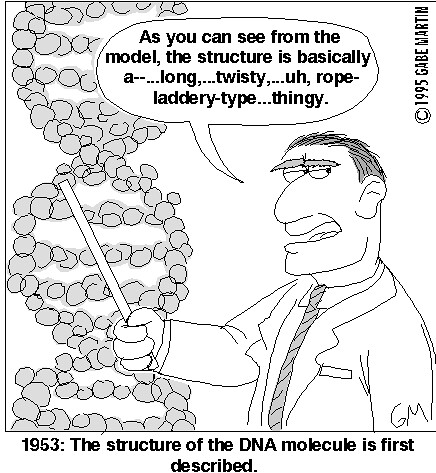An infectious disease is any disease caused by germs that can be spread from one person to another.
Germs include viruses, bacteria and protozoa. What are some infectious diseases?
This activity will simulate the spread of an infectious disease. A simulation is a simplified demonstration
of a real biological process. Our simulation will show how an infectious disease can spread from one
infected person to other people, who in turn infect others.
Instructions
1. Your teacher will give everyone a cup filled with a clear solution. This solution represents your
body. Only one person in the class will have a cup that has been “infected”.
Obviously, you should not drink from the cup. (In laboratory activities you should never drink or
eat anything unless your teacher tells you that it is safe to do so.)
2. In this part of the activity, you will interact with two other students.
To interact with another student, pour all of your solution into your partner’s cup. Then have your
partner pour all of the mixed solution back into your empty cup. Finally, pour half of the mixed
solution back into your partner’s empty cup.
Wait for the signal from your teacher, and then move to another part of the classroom and interact
with a second student. After you have finished your second interaction, return to your seat.
Estimate how many people you think will be infected. ________
3. Your teacher will come around and put an “infection indicator” in your cup. If you have exchanged
solutions with the original infected person or someone else after they became infected, you are now
infected and your solution will turn pink. If you have not exchanged solutions with anyone who was
infected, your solution will not turn color.
Next, your teacher will ask everyone who is infected to raise their hand.
How many people were infected? ________
4. You will do another set of interactions, again beginning with only one student with an infected cup.
This time there will be three rounds of interactions. For each interaction, be sure to move to a
different part of the room with different students.
Estimate how many people you think will be infected after each student has interacted with three
other students. ________
After the teacher has come around with the indicator, write down how many people were actually
infected. ________
"We keep moving forward, opening new doors, and doing new things, because we're curious and curiosity keeps leading us down new paths." Walt Disney "The important thing is not to stop questioning. Curiosity has its own reason for existing." Albert Einstein
Wednesday, May 13, 2015
Monday, May 11, 2015
Review of karyotypes
Click here for the directions to go with the karyotype activity.
Make a copy and add your answers as you go. Take pictures and upload them even ;)
Submit to Canvas before you leave today.
Make a copy and add your answers as you go. Take pictures and upload them even ;)
Submit to Canvas before you leave today.
Monday, May 4, 2015
Presentations and some other stuff
We are going to take the first 30 minutes or so to discuss your "design a habitat" projects.
Once that discussion is concluded, we are going back to some older standards.
Function Finders.
Click here for the DNA sequences -- make a copy to add information into it.
Click here for the codon wheel to determine the amino acid sequence.
click here for the protein profiles once your data table is complete.
Once that discussion is concluded, we are going back to some older standards.
Function Finders.
Click here for the DNA sequences -- make a copy to add information into it.
Click here for the codon wheel to determine the amino acid sequence.
click here for the protein profiles once your data table is complete.
Wednesday, April 29, 2015
Work Days
Monday, April 27, 2015
Reminder: May 8th is the DUE date for concept recovery and assignments.
Please let Mrs. Strong or me know if you are coming in for help during lunch.
Today we are going over how to read and build a cladogram. There was some confusion on this part for design a habitat.
Due Date for Design A Habitat: Due this Friday May 1st. Presentations are happening Monday May 4th.
Please let Mrs. Strong or me know if you are coming in for help during lunch.
Today we are going over how to read and build a cladogram. There was some confusion on this part for design a habitat.
Due Date for Design A Habitat: Due this Friday May 1st. Presentations are happening Monday May 4th.
Friday, April 24, 2015
Notebook Check
Notebook Check Monday:
131- Sex Linked Traits
132-Lady Bugs
133 & 134- Cracking the Code of Life
135- Pedigree
131- Sex Linked Traits
132-Lady Bugs
133 & 134- Cracking the Code of Life
135- Pedigree
Thursday, April 23, 2015
Quick Poll:
If you need help, what times work better?
If you need help, what times work better?
- Before School
- Lunch
- Advisory
- After School (some days will not be available)
- There will be someone in class tomorrow video taping me.
- Notebook check on Monday: Pages 131-135
- Click here for stuff.
Wednesday, April 22, 2015
Earth Day
Good Afternoon!!! Happy Earth Day!!!!!
- No Bell work today.
- Since it is Earth Day we are going to be talking about environmental changes that can affect evolution of a species.
- We will be going over the Design a Habitat project today.
Tuesday, April 21, 2015
Types of Selection
No Bell Work today but we are watching a video.

- We are learning about types of Natural Selection.
- Directional, Disruptive and Stabilizing
- What and how it works with examples.
- Write down what you know in your notebooks (pg 142).
Tuesday, April 14, 2015
Friday, April 10, 2015
Cladogram
Let's Build A.........

Cladogram!!!
On page 141 & 142 tape in "Let's Build A Cladogram" worksheets.
Click here for the survey. It is online, doesn't count for a grade and it is anonymous and it is for my grade.
Cladogram!!!
On page 141 & 142 tape in "Let's Build A Cladogram" worksheets.
Click here for the survey. It is online, doesn't count for a grade and it is anonymous and it is for my grade.
Thursday, April 9, 2015
Natural Selection
In your notebook on page 140:
Make 3 coloums and at the top of Column 1 -What we know?
Column 2- How to invesigate?
Column 3- Conclusions
We are going outside to the "pond".
At the end of this lesson: You will be able to understand Natural Selection.
Make 3 coloums and at the top of Column 1 -What we know?
Column 2- How to invesigate?
Column 3- Conclusions
We are going outside to the "pond".
- No running.
- Don't go near the water.
- Do NOT pull out plants or swing from the trees.
At the end of this lesson: You will be able to understand Natural Selection.
Wednesday, April 8, 2015
Starting Evolution
Bell Work Question ( write on page 139)
What do you know about evolution?

What do you know about evolution?
- We are moving on to new unit: Evolution
- Be prepared to take your shoes off.
- Remember it is for Science.

Monday, April 6, 2015
Mendel Test
- Review for test for first half of class.
- Think of something you need help understanding.
- Mendel Genetics Test second half of class.
- Click here to log into Canvas.
- Wednesday: Be prepared to take your shoes off in class (there is a purpose)

Thursday, April 2, 2015
Tests and More Tests
- AIMS Science Today!!!!!
- And....more testing......REMINDER: Mendel Test on Monday the 6th.
- Notebook Check on Monday, as well. Pages 126-130: Bell Work for Week 3/6, Flower Dissection, Design A Species Directions/Rubric and Bell Work for Week of March 12th.
- Click Here for the Objectives of the Mendel test.

Friday, March 27, 2015
Stuff
Bell Work: Pg 138
What is Mendel's Law of Segregation? Law of Independent Assortment?
What is Mendel's Law of Segregation? Law of Independent Assortment?
- Design A Species Due Today
- Notebook check on Tuesday pgs 126-130
- AIMS Science next Thursday and Friday
- Mendel Test on Monday April 6th. If you need HELP- Please ASK!!
- We are watching "What Darwin Never Knew"
- No School Monday!!
Wednesday, March 25, 2015
Guinea Pigs
Bell Work on page 138 ( correct me if I am wrong)
What is the phenotypic ratio of the offspring when RrYy x RrYy are crossed?
Announcements:

What is the phenotypic ratio of the offspring when RrYy x RrYy are crossed?
Announcements:
- Design A Species due on Friday.
- Science AIMS on April 2nd and 3rd
- No school on Monday
- Block Schedual on Thursday and Friday (2nd and 3rd).
- Notebook check on Tuesday.
- Mendel Genetics Test will be given Monday April 6th. Please come in during advisory if you need help.

Monday, March 23, 2015
DNA Extraction
Welcome Back!! Hope you all had a good break but now back to reality! It is going to be a BERRY-full day!! Design a Species due Friday.
Quick Class Discussion: Remember WAAAYYYY back in the day (like 2 months ago) when we watched Photo 51 and the scientist extracted a glob of DNA. Now think about what you know about DNA and think of why it you were able to see it.
Objective for Today:
Click here for design a species.
Quick Class Discussion: Remember WAAAYYYY back in the day (like 2 months ago) when we watched Photo 51 and the scientist extracted a glob of DNA. Now think about what you know about DNA and think of why it you were able to see it.
Objective for Today:
- Dihybrids
- Extracting DNA from strawberries (actually seeing what you have been learning about)
- You will be in groups of 2 or 3.
- Supplies: Rubber band, coffee filter, 10 ml of buffer solution, 1 strawberry, 1 10 ml graduated cylinder, 1 400 ml beaker, and 1 test tube and 1 pipette/straw and 1 plastic bag.
- You will be smashing the strawberries. Be careful not to break the bag.
Click here for design a species.
Friday, March 13, 2015
Thursday, March 12, 2015
Mid-term today
When you are done with the mid-term,
Click here -- enter your ID # for the username and the password.
Click on Student-at-a-glance (on the left of the screen). Click on your name, and then assignments. Your classes should come up on the middle part of the screen, click on assessments under Biology, and then take assessment. You should be able to enter your answers there. Once complete, click save and then submit.
Click here -- enter your ID # for the username and the password.
Click on Student-at-a-glance (on the left of the screen). Click on your name, and then assignments. Your classes should come up on the middle part of the screen, click on assessments under Biology, and then take assessment. You should be able to enter your answers there. Once complete, click save and then submit.
Wednesday, March 11, 2015
Mid-Term Review
Bell Work pg 126
What do the symbols mean on this pedigree? When the symbols are shaded in?
The objective for today:
- Do pedigree problems.
- Review meiosis.
- DNA vocab- what words?
Monday, March 9, 2015
Starting Peidgrees
Bell Work: on page 135..
If a person who is a carrier for cystic fibrosis (recessive trait) mates with a person who has the condition, what are the chances the offspring will be carriers? Or have the disease?
Today:

If a person who is a carrier for cystic fibrosis (recessive trait) mates with a person who has the condition, what are the chances the offspring will be carriers? Or have the disease?
Today:
- Notebook check.
- Tape or glue pedigree pages onto 136-137.
- Finishing up "Lady Bugs": You will turn in the karyotype data table.
- Watching video about pedigrees.
- White boarding problems in groups. Work through the problem together.
- MID-TERM ON THURSDAY

Friday, March 6, 2015
Cracking the Code of Life
Today you will be watching "Cracking the Code of Life". Answer the questions about the movie in your notebook on pages 133-134 (or the next 2 blank pages you have).
Monday we will finish the "Lady Bug" activity.
Have a great weekend!!!
NOTEBOOK CHECK ON MONDAY!!! TEST ON THURSDAY!!!!

Monday we will finish the "Lady Bug" activity.
Have a great weekend!!!
NOTEBOOK CHECK ON MONDAY!!! TEST ON THURSDAY!!!!

Thursday, March 5, 2015
Lady Bugs
Bell Work Question:
What is the term used when a person has the gene for a disease but does not have the symptoms?
The objective of today: Click here for today's presentation.

Vocab from yesterday:
Sex Linked Traits: the chromosomes that determine whether the offspring is going to be male or female. X chromosome.
Carrier: a person or organism that has the recessive alle of a mutation or genetic trait but does not show the trait or disease.
What is the term used when a person has the gene for a disease but does not have the symptoms?
The objective of today: Click here for today's presentation.
- You will investigate genetic disorders.
- Be able to identify chromosome abnormalities.

Vocab from yesterday:
Sex Linked Traits: the chromosomes that determine whether the offspring is going to be male or female. X chromosome.
Carrier: a person or organism that has the recessive alle of a mutation or genetic trait but does not show the trait or disease.
Wednesday, March 4, 2015
Flip-A-Coin
Bell Work ( on page 126)
What is the difference between genotypic and phenotypic ratios?
Today:
- We are learning about sex-linked traits
- We are learning about genetic carriers.
- In pairs you will be building an offspring.
- Top Half: vocab words :sex-linked and carrier
- You will be in pairs: each person will flip a coin to see what traits your offspring will have.
- On the bottom half of the page write genotype and phenotype of your offspring.
Draw your offspring.
Monday, March 2, 2015
Flower Dissection
BW -- pg 126
We have been learning about Mendel's experiments with pea plants. Biologists use plants all the time.
The objective for today: Tape onto 127 and 128
You are starting "Design a Species"

We have been learning about Mendel's experiments with pea plants. Biologists use plants all the time.
- Why?
The objective for today: Tape onto 127 and 128
- We are dissecting flowers today.
- Be able to identify the parts of the flowers.
- Answer the questions.
- Use the dissection microscope to view the parts.
- While you are looking at the flowers, look at the phenotype. Do you think it could be codominance or incomplete dominance?
- What could the genotype be?
You are starting "Design a Species"
- Work in groups of 2 or by yourself.
- Go over instructions.
Friday, February 27, 2015
Spongebob Genetics
Bell Work ( on page 119)
A cross between a black cat and a tan cat produces a tabby pattern (black and tan together).

You will white board your answers and then show them.
REMINDER: Please bring in the permission slips for the video taping!!

A cross between a black cat and a tan cat produces a tabby pattern (black and tan together).
- What pattern of inheritance does this show?
- What percent of kittens would have tan fur if a tabby cat (BT) is crossed with a black cat (BB)? (Hint: use a Punnett square).
You will white board your answers and then show them.
REMINDER: Please bring in the permission slips for the video taping!!
Thursday, February 26, 2015
Types of Dominance
More Bell Work but on your whiteboard.
What do you notice about the flowers?
Write down at least 2 observations.
Tape Dominance of Alleles onto 125.
For those that were gone yesterday:

What do you notice about the flowers?
Write down at least 2 observations.
Tape Dominance of Alleles onto 125.
- In groups of 2, one person will read about Incomplete dominance and the other co-dominance.
- After reading it you will explain it to each other.
For those that were gone yesterday:
- Read yesterday's blog for what we did.
- There are problems to be taped into your notebook.
Wednesday, February 25, 2015
Practice Problems
Bell Work -continued on page 119
Suppose
Mendel had made his observations a few decades later when there as more
widespread knowledge of chromosomes throughout the scientific community. How do you suppose this may have impacted the
development of his theory?
It is going to be a PUN-tastic day. Today we are working on more Punnett square problems.
Problems 1-3 goes on page 122
Problem 4 goes on page 123.
Problems 1-3 goes on page 122
Problem 4 goes on page 123.

Subscribe to:
Comments (Atom)








